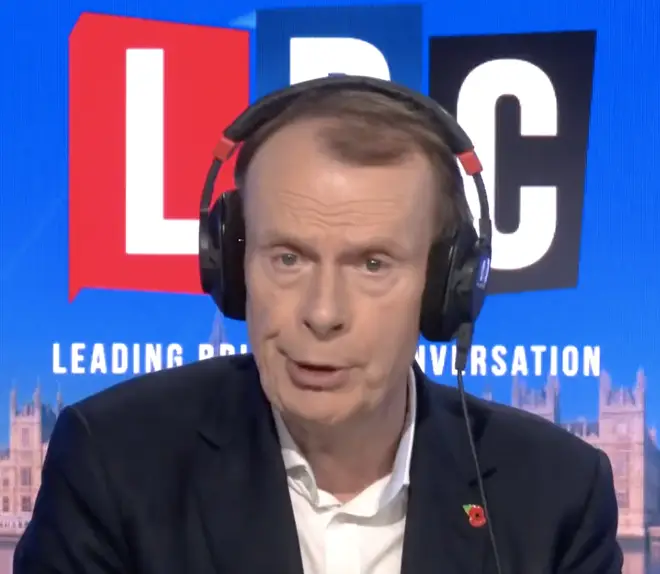
Oli Dugmore 4am - 7am
3 November 2022, 18:11

The Bank of England's historically sharp interest rate hike on Thursday - the steepest increase for 30 years - will bring a "huge human cost", Andrew Marr has said.
Speaking on LBC's Tonight with Andrew Marr, Andrew warned that the rate rise would take its toll on "businesses of all kinds, anyone with a mortgage" and the wider economy, with many people likely to lose their jobs.
"Today has been an important one in the story of modern Britain, a solemn day, a day which will cast its shadow for a long time to come," Andrew said.
"Today, the Bank of England raised interest rates to 3%, the sharpest increase for 30 years. It said we were already in a recession, deeper than expected, which would be “very challenging” and last for 2 years, the longest since the First World War."
He went on: "The idea’s to squeeze down inflation, running at more than 10%. What is happening now still comes at a huge human cost to businesses of all kinds, anyone with a mortgage, and more generally across the economy, where unemployment’s likely to rise.
"So if ever a financial decision deserved hard cross examination, it's this one. Some leftish economists blame the Bank of England itself," Andrew added.
Watch Tonight with Andrew Marr exclusively on Global Player every Monday to Thursday from 6pm to 7pm
Andrew Marr: 'Today has been an important...solemn day.'
"Professor Richard Murphy argues that since the charts show inflation starting to disappear from next March, no rate rise is required at all. The bank’s reckless policy of increasing interest rates, he says, will put millions out of work.
"Jeremy Hunt, the Chancellor, by contrast, said today that inflation is the enemy, weighing heavily on families, pensioners and businesses. The number one priority was to grip inflation; and the bank was right. "
You can also listen to the podcast Tonight with Andrew Marr only on Global Player.
Andrew continued: "Thus the conventional response to inflation - raise interest rates - and the radical one - don’t, it’s not that kind of inflation - are dramatically pitched against each other.
"These kind of intellectual confrontations have happened before, of course, most famously when the great economist John Maynard Keynes took on the consensus which was causing mass unemployment between the world wars."